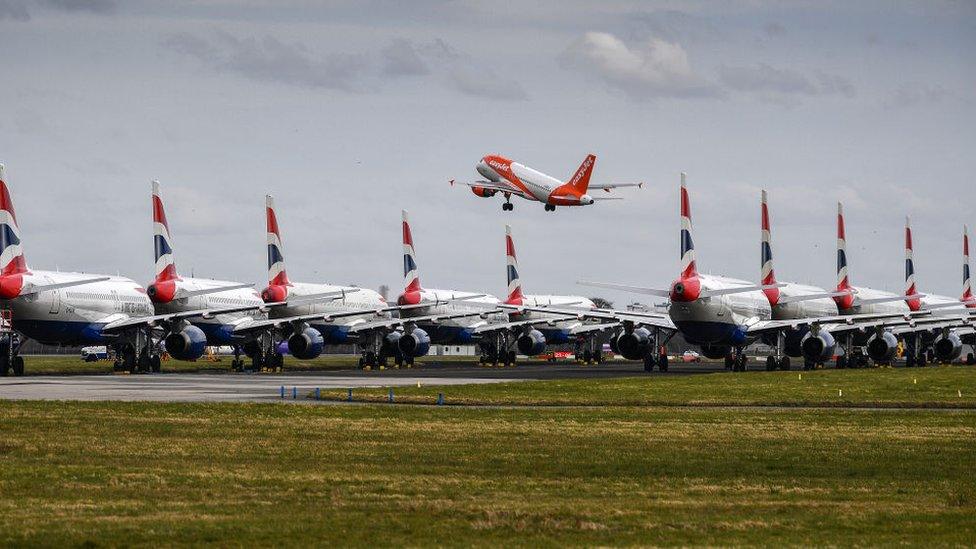Coronavirus: EasyJet grounds entire fleet of planes due to virus
- Published
- comments
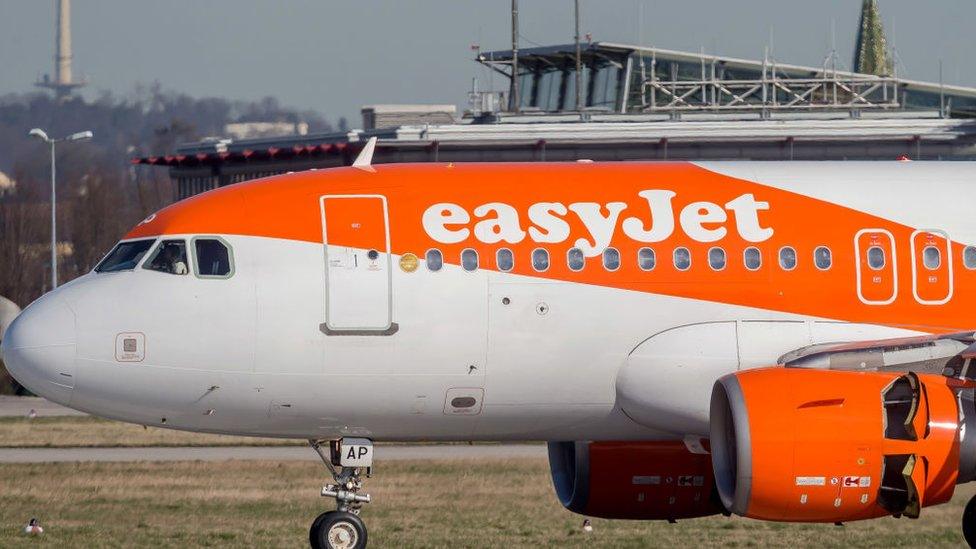
EasyJet has grounded its entire fleet of planes and said it cannot give a date for when they will restart.
The budget airline said it had made the move due to the "unprecedented travel restrictions" imposed by governments globally due to the virus pandemic.
It had already cancelled most services but had been running rescue flights to repatriate Britons stranded abroad.
"We will continue to work with government bodies to operate additional rescue flights as requested," it said.
EasyJet has flown 650 rescue flights so far taking 45,000 people home.
The move came as regional airline Loganair said airlines were unlikely to survive without a government bailout.
The pandemic has had a severe impact on airlines, Loganair boss Jonathan Hinkles told the BBC's Tom Burridge.
He said that any airline saying it could survive without government help "would probably be lying".
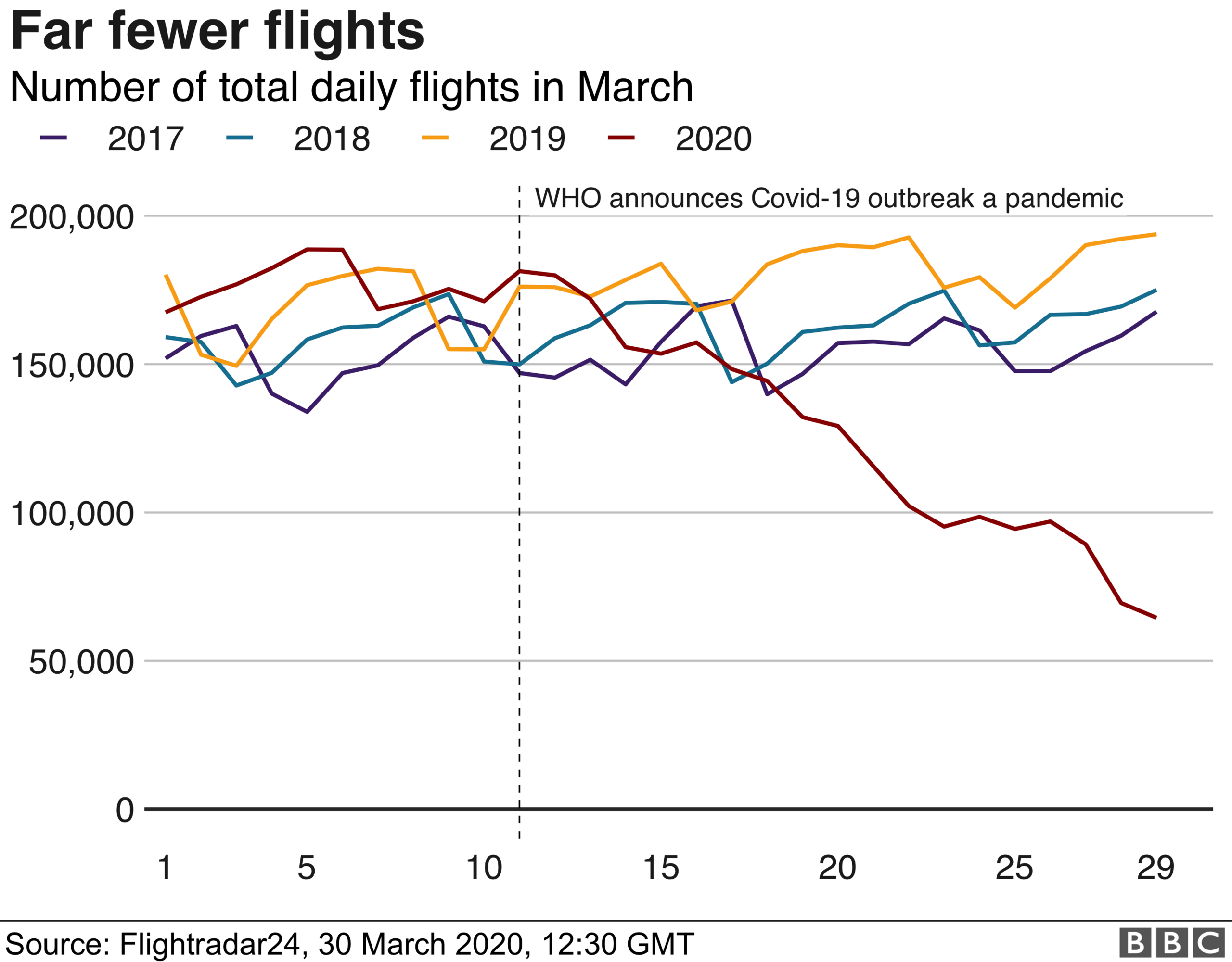
'Challenging time'
EasyJet said its cabin crew would be furloughed, with staff paid 80% of their wage from 1 April through the government's job retention scheme.
The airline's boss, Johan Lundgren, said he was "working tirelessly" to make sure the airline was "well positioned to overcome the challenges of coronavirus".
"I am extremely proud of the way in which people across EasyJet have given their absolute best at such a challenging time," he added.
EasyJet's headquarters are at London Luton Airport and it has 331 planes. In normal times, it serves 159 airports and 1,051 routes.
Mr Lundgren said the airline had operated its last rescue flight on Sunday 29 March, but would continue to offer further rescue flights "as requested".

What if you have flights booked with EasyJet?
If your flight has been cancelled you are entitled to a full refund to the original form of payment within seven days under EU air passengers' rights rules.
But getting your cash may prove tricky as the airline - along with British Airways - has removed the usual option where passengers would be sent a link that took them to the booking and they could request their money back online within seconds.
Instead many airlines are trying to persuade passengers to take vouchers instead.
To get your money back you'll have to phone the airline.
EasyJet told the BBC: "Customers on cancelled flights can transfer to an alternative flight free of charge or receive a voucher for the value of their booking online or claim a refund through our contact centre.
"We are experiencing higher than average wait times so we would thank customers for their patience and assure them that these entitlements will be available long after their cancelled flight has flown."

The vast bulk of flights to and from the UK have been grounded due to travel restrictions imposed to control the spread of coronavirus, with many airlines expected to seek government help to survive.
Virgin Atlantic has already indicated that it will seek a bailout and other airlines are expected to follow suit.
The government has said it will only step in to help struggling airlines "as a last resort" on a case-by-case basis.
But industry group the International Air Transport Association (IATA) has warned of an "apocalypse" in the aviation sector as it urged governments around the world to help.
Easyjet said on Monday it would not need a bailout.
"We have no plans currently to ask the government for bespoke support as outlined by the chancellor," it said.
However, it added: "To support recovery in the future, we believe that further actions will be needed such as a temporary removal of Aviation Passenger Duty and Air Traffic Control Charges."

What do I need to know about the coronavirus?
A SIMPLE GUIDE: How do i protect myself?
AVOIDING CONTACT: The rules on self-isolation and exercise
LOOK-UP TOOL: Check cases in your area
MAPS AND CHARTS: Visual guide to the outbreak

'We have to fly'
Loganair's Mr Hinkles warned that the connectivity of remote Scottish islands and rural communities across the UK "cannot be maintained without air services", arguing that government support for his airline was "essential".
Loganair operates routes to the UK's most remote airports such as Barra in the Outer Hebrides, and it is still ferrying people, mail and essential goods, such as pharmaceutical products, out to about 15 island airports.
Nevertheless, the Scottish carrier has had to ground half of its fleet and dramatically slash its flying schedule. This has put its entire operation in jeopardy.
"We can't just shut down", Mr Hinkles said. "Morally, we have to fly."
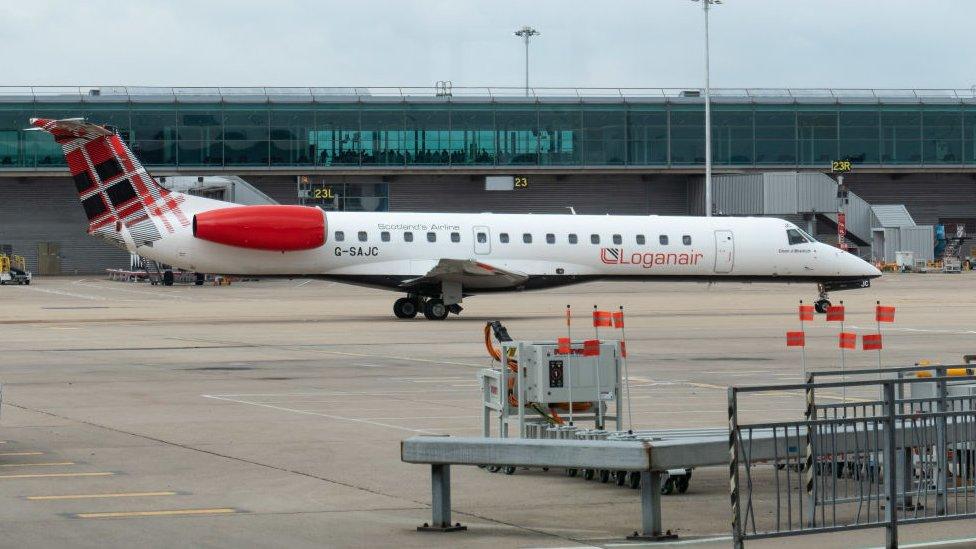
Loganair operates routes to the UK's most remote airports
All airlines have called for additional support measures from the government to weather the storm.
The industry group Airlines UK and the Airport Operators Association have asked the government to cover air traffic control charges and payments to the Civil Aviation Authority until the end of this year.
Airlines also want a six-month suspension of the Air Passenger Duty tax, which brings in £3bn every year to the Treasury.
A spokesperson for the Department for Transport said that the aviation sector is "important to the UK economy".
They added: "We are willing to consider the situation of individual firms, so long as all other government schemes have been explored and all commercial options exhausted, including raising capital from existing investors."
Meanwhile there is still a fair amount of traffic coming to and from London's Heathrow airport.
That is because the amount of cargo handling via Heathrow has doubled in recent days as vital supplies are being moved around the globe, including medical equipment, the airport told the BBC.
- Published27 March 2020
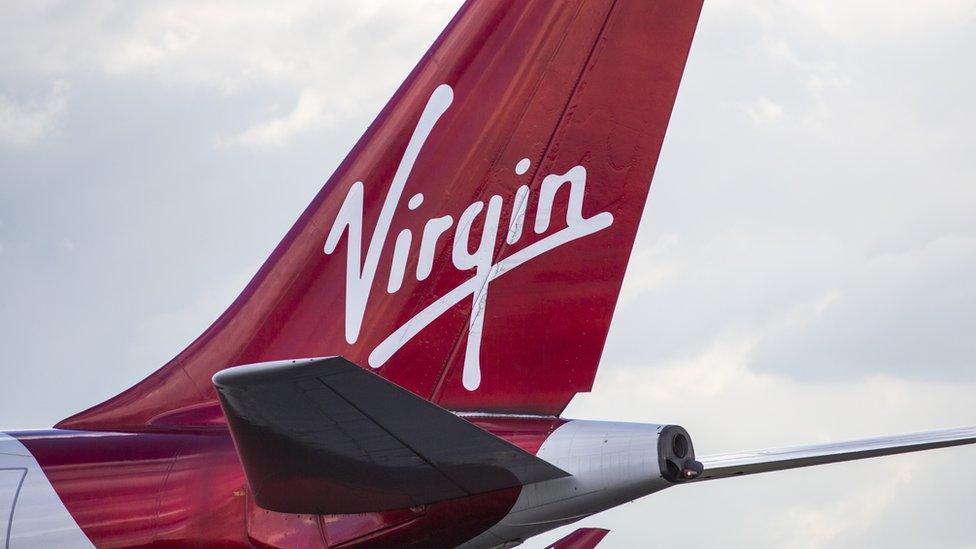
- Published24 March 2020
